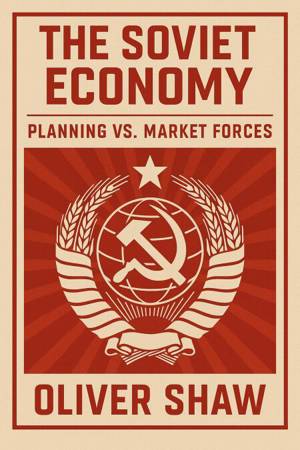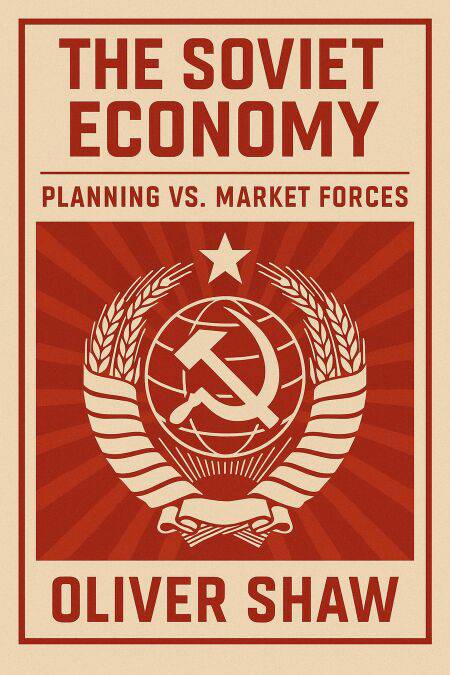
- Retrait gratuit dans votre magasin Club
- 7.000.000 titres dans notre catalogue
- Payer en toute sécurité
- Toujours un magasin près de chez vous
- Retrait gratuit dans votre magasin Club
- 7.000.0000 titres dans notre catalogue
- Payer en toute sécurité
- Toujours un magasin près de chez vous
Description
"The Soviet Economy: Planning vs. Market Forces" by Oliver Shaw examines the complexities and contradictions of the Soviet economic system, tracing its evolution from Stalin's centralized state-controlled industrialization to the market reforms of Mikhail Gorbachev. Through a detailed exploration of Soviet economic theory, policies, and practices, the book delves into the ongoing tension between state planning and market mechanisms. It examines how the centralization of power and resources led to early successes but ultimately sowed the seeds of inefficiency, stagnation, and economic decline. The narrative explores key economic crises, from the failed agricultural collectivization to the collapse of the USSR, and evaluates the impact of shock therapy and the transition to market capitalism in post-Soviet Russia. This book offers an in-depth analysis of the Soviet Union's economic legacy, the failures of its planned economy, and the challenges of economic reform. It ultimately asks whether market forces, rather than state control, could have saved the Soviet system from collapse, and what lessons can be applied to modern economies grappling with similar issues.
Spécifications
Parties prenantes
- Auteur(s) :
- Editeur:
Contenu
- Langue:
- Anglais
Caractéristiques
- EAN:
- 9798227226600
- Date de parution :
- 18-04-25
- Format:
- Ebook
- Protection digitale:
- /
- Format numérique:
- ePub

Les avis
Nous publions uniquement les avis qui respectent les conditions requises. Consultez nos conditions pour les avis.






